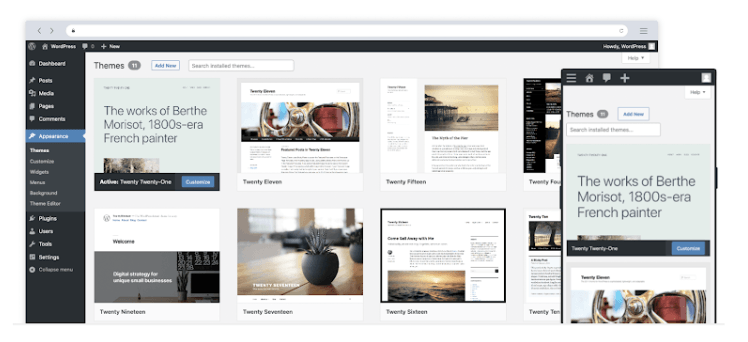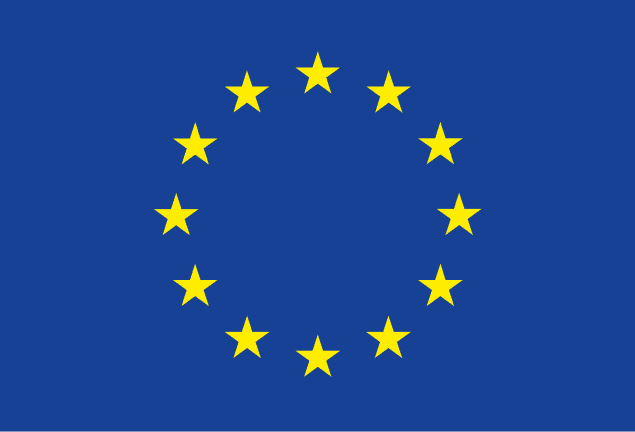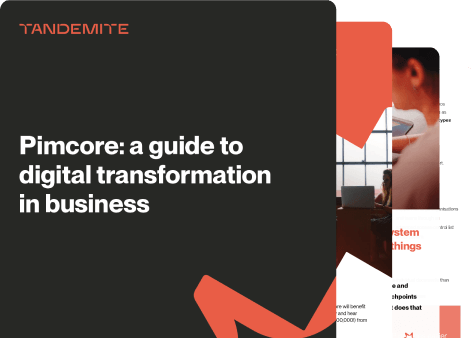Contentful and WordPress are currently among the top CMSs on the market. Both solutions are not only popular, but have also garnered countless positive reviews from satisfied customers. It comes as no surprise that many companies have trouble deciding which of the two systems to opt for. If you’re also facing a similar decision and want to meet your customers’ expectations, then read on to find useful advice.
From this article, you’ll learn:
- Why it’s worth using a CMS
- Which CMS will suit you better, WordPress or Contentful
- How to tailor content directly to the needs of users
- Whether online security matters
- Which platform will help you provide optimal customer service
Contentful vs WordPress, or which of the two top CMSs you should choose
Operating in e-commerce requires you to work continuously with data and quickly adjust to new trends.
If you want to tailor your online store to the needs of your customers to ensure high sales, it’s worth not only designing a visually attractive website but also skilfully implementing the latest technologies.
Below, you’ll find a comparison between the two most popular CMS platforms that allow you to adjust your business to your customers’ expectations and provide effective content management.
What is a CMS?
A content management system, or CMS, allows you to both create and modify digital assets at will.
However, in order to meet the latest technical requirements and expectations of consumers already accustomed to convenience and fast-loading pages, you need to make sure to choose the right CMS.
A modern CMS platform gives you control over your online store, letting you manage all types of content even if you lack technical knowledge, such as HTML.
Even though Contentful is a relatively new arrival compared to WordPress, it comes with a range of possibilities worth taking advantage of, especially if you own an online store.
WordPress
WordPress is known as the most popular CMS platform. This software has for years aided businesses in managing content and designing a rich variety of websites.
With WordPress, you don’t need to know HTML, CSS or PHP to create websites. Building a website is as easy as using pre-made components and adding the plugins and motives you like.
An undeniable advantage of WordPress is the ability to install it on any server. With the help of this flexible system, you can create a unique website, whether for an online store, as your company’s frontpage or for any other purpose.
Currently, about 30 percent of all websites are projects built on WordPress.

Contentful
Contentful is a CMS platform based on an API. The main purpose of Contentful is to create, manage and distribute content through various digital channels.
The platform provides developers with several API interfaces, which allow them to take a flexible approach to their work. The entire front-end of a website and delivery channel depends on the individual programmer tasked with creating them.
With Contentful, you get immense flexibility, thanks to its headless architecture that facilitates rapid changes in response to customer needs.
Contentful vs. WordPress, or let’s compare the two top CMS platforms
While there are many tried and tested CMS platforms available on the market, choosing which one to opt for is difficult without proper preparation.
Below, we describe a few aspects that will help you learn more about Contentful and WordPress to make the decision easier.
Popularity
Although Contentful is immensely popular, it still falls behind WordPress in this respect, as do most available platforms.
WordPress has been around for the proverbial ages and remains a compelling choice among both experienced and beginner programmers. What’s more, using WordPress is pure fun.
Ease of use
WordPress is easy to use for both beginners and advanced creators. Installing the system takes just a few minutes, and taking advantage of its functionalities should be no problem, even for users who lack the technical know-how.
Contentful is a step up from WordPress in terms of complexity. However, the developers of Contentful offer excellent customer service, which lets everyone use the platform easily, regardless of experience.
In order to take full advantage of Contentful, it’s worth cooperating with programmers who have experience with APIs.
Scalability
Contentful is a highly scalable cloud-based platform, which allows it to be dynamically modified and adjusted to various expectations.
In contrast to Contentful, the scalability of WordPress leaves something to be desired. WordPress requires the website to be assigned to a single server, which might make managing it slightly difficult.
Customer support
Due to the free accessibility and open-source character of WordPress, customer support is virtually non-existent. However, there is a wide selection of exhaustive guides about the platform available on the Internet, and you can always ask on one of the popular forums if you’re about a specific problem.
On the other hand, Contentful provides high-quality user experience. The developers of Contentful take care to maintain user comfort by offering support and real-time answers to questions.
Pricing
WordPress belongs to one of those platforms that don’t cost a single penny to use. However, to get a unique visual theme, hiring IT professionals is necessary.
Contentful can also be used completely for free, but access to the full range of functionalities requires a subscription. There are three different subscription plans available:
- Free – no monthly fee;
- Basic – USD 300 per month;
- Premium – price is negotiated on an individual basis.
Each plan comes with both advantages and disadvantages, which is why you should consider them with the good of your business and your customers in mind.
Security
Updating your website regularly is a good way to ensure that using WordPress is completely secure.
The platform supports many different plugins that provide security and protect your website from malicious attacks.
In turn, Contentful implements a special Information Security Management System and international certificates of high-quality protection from malicious attacks.
Programmers who work with APIs can also take advantage of server-free rendering, which decreases threat risk and offers security provided by generators.
All in one place
In Contentful, all content is managed from the same place, which means that the same materials can be distributed through different channels.
The platform supports integration with other systems and facilitates team cooperation. Both editors and programmers are able to work on the same assets. The system itself has an intuitive interface.
Conversely, using WordPress opens up a lot of possibilities, such as plugins. Once you familiarize yourself with the platform, you can start expanding your website freely.
CMS adjusted to your needs
The main benefit of WordPress is the ability to create various types of websites. Conversely, Contentful is designed to provide content and elevate user experience onto a higher level.
If you want a free CMS that lets you freely pick and choose the themes and functionalities you’re interested in, then WordPress is sure to meet your expectations.
As a headless system, Contentful is more advanced, highly flexible and scalable. It ensures effective management of content and allows for integration with other systems and tools.
Summary
As shown in the comparison above, both WordPress and Contentful have multiple strengths. Which of the two platforms you choose depends on the needs of your business and your customers.
If you still can’t decide which of the solutions suit your business, get in touch, and we’ll prepare a plan of action together.





